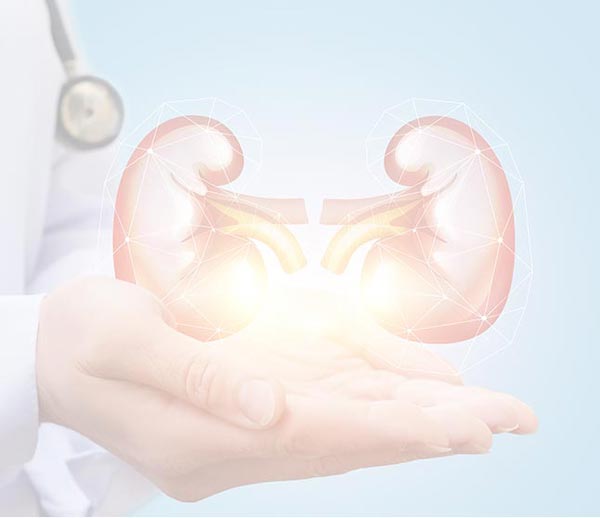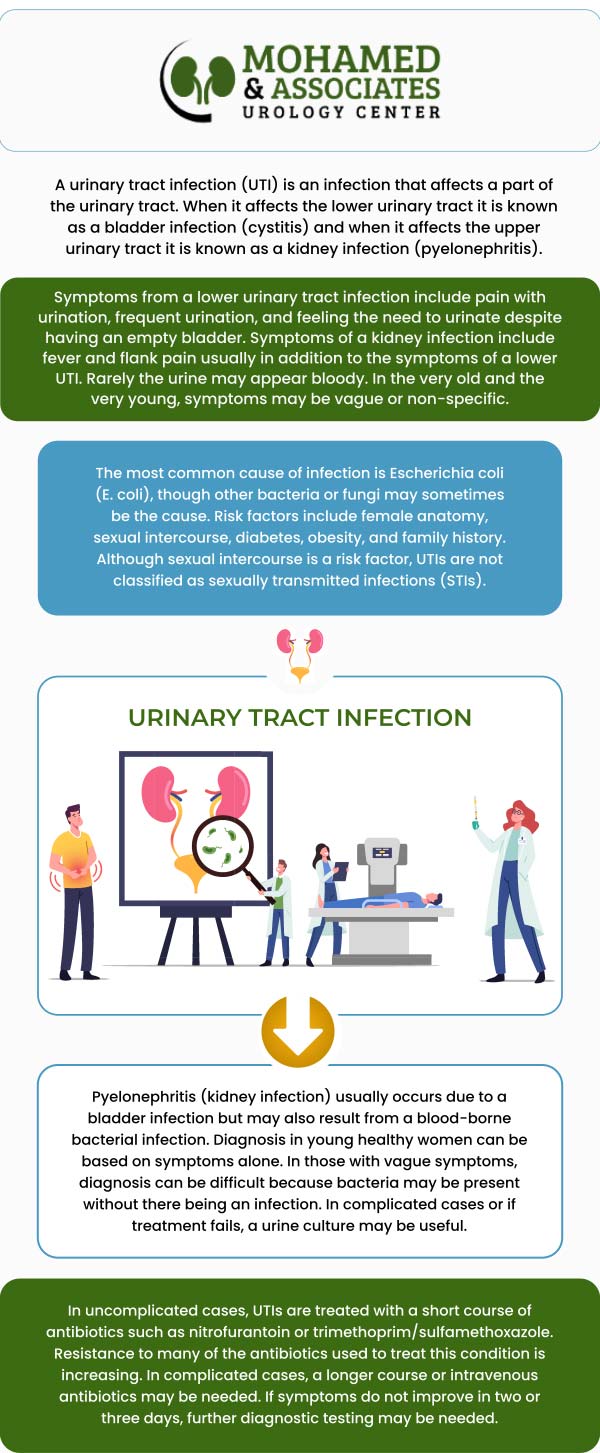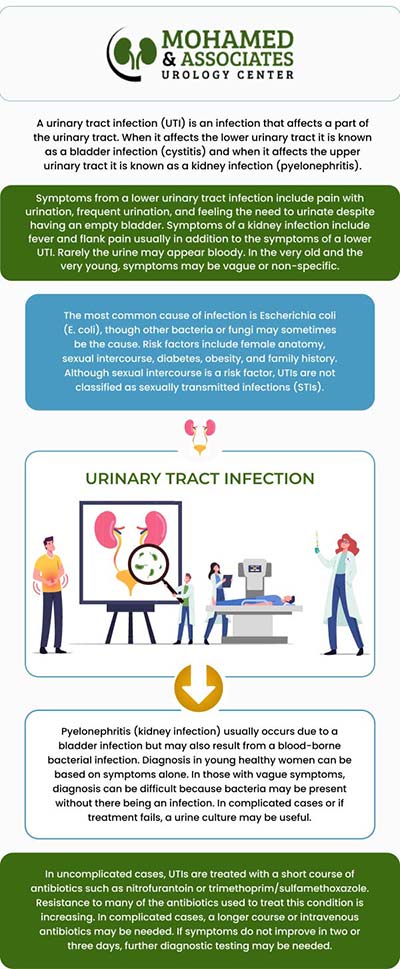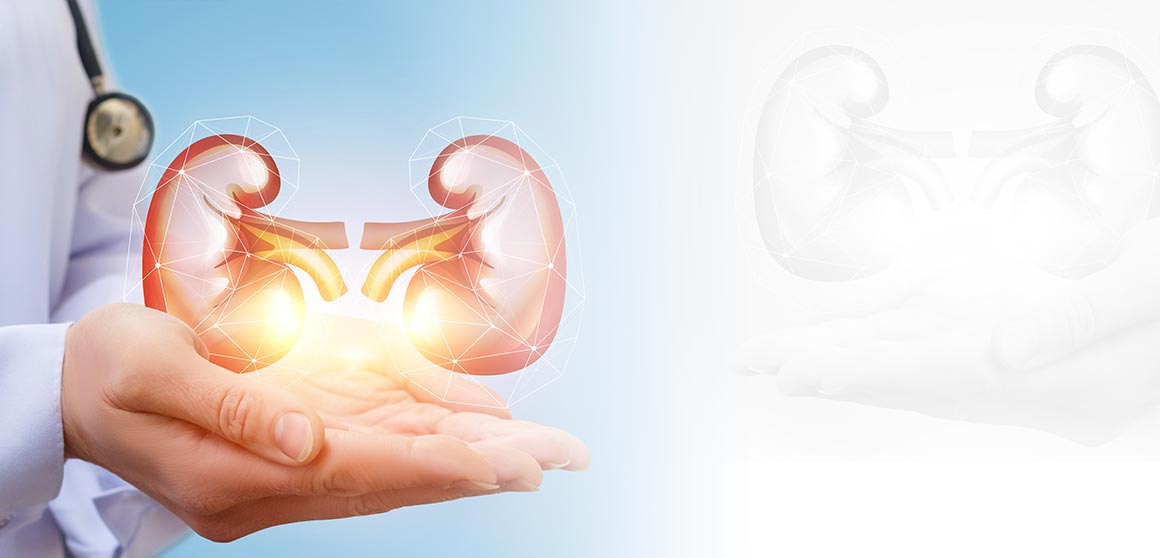Home » Smithfield, NC Urinary Incontinence Doctors
You cannot copy content of this website, your IP is being recorded
Can a UTI Lead to Urinary Incontinence?
Are you suffering from UTIs? There is a chance that your UTI can lead to urinary incontinence if not treated properly. If you are having an infection in the urinary tract, in the kidneys, ureters, bladder, or urethra, get yourself checked from our urologist Adel W. Mohamed, MD, FACS at Mohamed & Associates Urology Center. For more information, contact our team of professionals today or visit us online to book your next appointment. We are conveniently located at 507 N Brightleaf Blvd #205, Smithfield, NC 27577.

Additional Services You May Need











